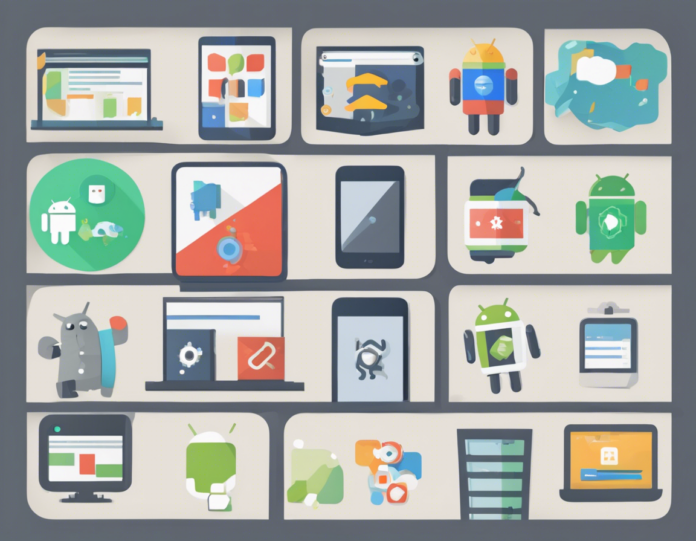Are you an aspiring developer looking to delve into the world of Android app development? Understanding the Android framework is crucial for creating robust and efficient applications. In this beginner’s guide, we will explore Android frameworks in detail, covering their significance, popular frameworks, and essential tools for development. Let’s dive in!
What is an Android Framework?
The Android framework forms the cornerstone of an Android application. It provides a set of APIs and tools that developers use to create apps for the Android platform. The framework consists of multiple layers that help in building and running applications smoothly on Android devices.
Components of the Android Framework
- Activities: These are the building blocks of an Android application, representing a single screen with a user interface.
- Services: Background processes that run without a user interface, performing long-running operations or tasks.
- Broadcast Receivers: They respond to system-wide broadcast announcements from other apps or the system.
- Content Providers: Manage a shared set of app data that can be accessed and modified by multiple applications.
Popular Android Frameworks
Numerous Android frameworks are available to streamline app development and enhance functionality. Let’s explore some of the popular ones:
1. Android Jetpack
Jetpack is a set of libraries, tools, and guidance to help developers write high-quality apps more quickly. It provides backward compatibility, reduces boilerplate code, and simplifies complex tasks.
2. Flutter
Developed by Google, Flutter is an open-source UI software development kit used to build natively compiled applications for mobile, web, and desktop from a single codebase.
3. React Native
React Native is a JavaScript framework developed by Facebook for building native applications using React. It allows developers to use React along with native platform capabilities.
4. Kotlin
While not a framework per se, Kotlin is a modern programming language that has become the preferred choice for Android app development due to its conciseness and reduced boilerplate code.
Essential Tools for Android Development
To work effectively with Android frameworks, developers rely on a set of essential tools that streamline the development process. Some key tools include:
- Android Studio: The official IDE for Android app development, offering a range of features such as code editing, debugging, and performance tools.
- Gradle: A build automation tool used to define build configurations and dependencies in Android projects.
- ADB (Android Debug Bridge): A versatile command-line tool that lets developers communicate with an Android device for various tasks like installing and debugging apps.
Best Practices for Android Development
When working with Android frameworks, it’s essential to follow best practices to ensure code quality, performance, and security. Some tips include:
- Modularize Your Code: Divide your code into modules for better organization and reusability.
- Optimize UI Performance: Use tools like the Android Profiler to analyze app performance and optimize UI rendering.
- Handle Memory Efficiently: Avoid memory leaks by properly managing memory usage in your app.
- Ensure Security: Implement secure coding practices and follow Android’s security recommendations to protect user data.
Frequently Asked Questions (FAQs)
1. What is the difference between Android framework and Android library?
Android framework refers to the entire architecture and set of APIs provided by the Android platform for app development. In contrast, an Android library is a reusable piece of code that offers specific functionality like networking, image loading, etc.
2. Can I use multiple Android frameworks in the same project?
Yes, developers often use multiple frameworks in a single Android project to leverage the unique features offered by each framework.
3. How do I choose the right Android framework for my project?
Consider factors like project requirements, development expertise, community support, and long-term maintenance when selecting an Android framework for your project.
4. Is learning Kotlin necessary for Android development?
While Java has traditionally been used for Android development, learning Kotlin is highly recommended due to its modern features, enhanced syntax, and official support from Google.
5. How can I stay updated with the latest Android frameworks and tools?
Stay connected with the Android developer community through blogs, forums, conferences, and official Android resources to keep pace with the latest frameworks and tools.
In conclusion, understanding Android frameworks is essential for developers venturing into Android app development. By exploring popular frameworks, essential tools, and best practices, developers can create innovative, high-quality apps for the Android platform. Embrace the dynamic world of Android development and unleash your creativity!
